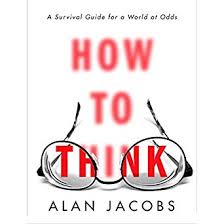How to Destroy Western Civilization - A Review
I believe Peter Kreeft will be remembered well after he stops writing. There may be a lull in popularity of his works, but he will be included in anthologies of thoughtful Christian writers of this era. Indeed, his dozens of volumes published over the last decades are all helpful. Some more than others. But they all reflect someone who has thought deeply about Christianity, culture, and the way human thought has developed over time.
How to Destroy Western Civilization and Other Ideas from the Cultural Abyss is a 2021 volume published by Ignatius Press. It’s the sort of book that a younger author with less of a catalog would not be permitted to publish, but it will sell some copies because it is Peter Kreeft and some people (like me) will buy it just because of that.
This volume is a collection of essays and pieces of writing that all reflect on the general theme of things that are wrong with the thinking of our present age. Kreeft demonstrates his characteristic thoughtfulness alongside his playful wit as he rehearses some of the themes that run through all of his works.
How to Destroy Western Civilization is not the place that someone new to Kreeft should begin. This is a volume that requires a little more context than it contains. The eighteen chapters are really eighteen distinct works. Some of them appear to be works that were formerly addresses to schools, some are online posts that are designed to draw a wry laugh, some appear to be articles or excerpts of works that may have been drawn from (or become) longer works. This potpourri approach to this volume is good for someone who already enjoys Kreeft and understands his work; it would be a challenge for the beginner. This problem is not helped by the lack of any introduction or annotations regarded where any of the works (which appear to be drawn from a significant span of time) were drawn.
That being said, there are some delightful aspects to this concise volume. Chapter Five, for example, is simply a list of internal conflicts within liberalism—by which Kreeft means progressivism. Thus, “Extremism is extremely bad,” is followed by “Don’t trust words,” which comes a little before “Absolutely no absolutes.” His point is well taken, and if it is seen as a caricature, that’s because it’s a little near to the truth for some sensitive souls. We also get an essay on heroes in Chapter Ten, which is an unironic reflection on why our age lacks people and characters that can be looked up to. Chapter Six offers a reflection on what the shift from Socratic logic to symbolic logic has cost our culture because it makes thoughts about the concrete of this world into abstract concepts. The fourteenth chapter helps clarify the problems with some contemporary understandings of freedom.
Kreeft is, in many ways, a man of the Middle Ages, much like one of his heroes, C. S. Lewis. He thinks differently than even many contemporary conservatives because he has feasted more on ancient and medieval thought than on contemporary debates. He is a man within our time, but perhaps more comfortable in another one. This makes all of his books, even this one, well worth reading.































There’s no reason to doubt that Jesus was nailed to the cross. Ultimately, I trust what Scripture says about Jesus’s crucifixion because I also trust what it says about his resurrection. And that’s what we should be celebrating this week.